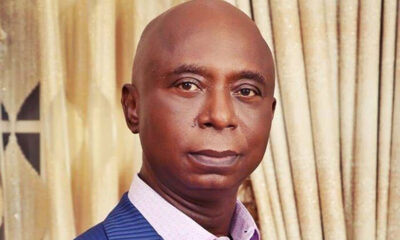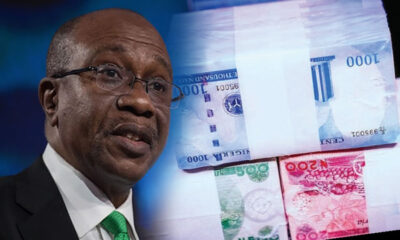Business
CBN’s $7.5 billion loans from US lenders mar Nigeria’s credit rating

The Central Bank of Nigeria (CBN)’s security borrowing from JP Morgan and Goldman Sachs could set Nigeria’s credit rating on a free fall to junk amid efforts to reposition the economy.
The apex bank, in its newly released 2022 financials, reported borrowing $7.5 billion from U.S banks JP Morgan and Goldman Sachs by pledging securities.
Analysts say that the loan deal, which the central bank said was contracted “in exchange for its securities to be held for collateral”, may impair the nation’s fragile fiscal position and credit rating.
The CBN also disclosed that it entered into 30-day forward contracts totalling 3.15 trillion naira in 2022 with undisclosed counterparties.
Sylvester Anaba, an analyst at a Lagos investment house, said there won’t be severe consequences as much as CBN can pay back its debt to these foreign creditors.
“But if they default, then investors will begin to dump our bond. It will also impact our credit rating,” he said.
“Recently, they brought up some ratings and Nigeria was maintained at B-, about six notches down to junk rating. It means by the time CBN defaults; there is nothing that will save us from entering junk.”
READ ALSO:
- Two arrested for raping 11-year-old girl in Imo
- Pastor Bakare attacks APC, Tinubu’s economic policies as anti-people
- We sacked Bazoum to save Niger, Nigeria – Niger Military junta tells Nigerian Muslim clerics +photos
The apex bank disclosure on borrowings of $7 billion and $500 million, respectively, from JP Morgan and Goldman Sachs leaves fragile investor confidence in Nigeria in danger of fresh harm after President Bola Tinubu’s host of currency reforms and termination of a regime of costly fuel subsidies that are already winning international investors back.
Rating agency Fitch last November downgraded Nigeria’s Long-Term Foreign-Currency Issuer Default Rating (IDR) to ‘B-’ from ‘B’, citing “deterioration in Nigeria’s government debt servicing costs and external liquidity despite high oil prices.”
Moody’s earlier verdict
A verdict by New York-based Moody’s Investors Service early this year similarly cut Nigeria’s ratings to non-investment grade in danger to its prospects of sourcing debt from the international capital market.
The then Minister of Finance, Zainab Ahmed, rejected Moody’s position.
“But these are external rating agencies that don’t have the full understanding of what is happening in our domestic environment,” she said in a retort.
S&P Global Ratings
Against the backdrop of recent reforms, S&P Global Ratings earlier in August revised its outlook on Nigeria to stable from negative.
“Nigeria’s newly elected government has moved quickly to implement a series of fiscal and monetary reforms, which we believe will gradually benefit public finances and the balance of payments,” the rating agency said in a statement.
Analysts are worried that the various revelations from the newly released CBN financial reports may reverse the gains of recent months.
An exposure that high without documentation in the country’s public debt books is an early setback to recent measures like the unification of Nigeria’s multiple exchange rates, aimed at stabilising the naira.
Nigeria’s dollar bond due in 2030 sank 2.295 cents to its lowest level in the past one month on Friday at 83.221 cents as a crisis of confidence in the economy heightened among investors.
“We are currently grappling with a confidence crisis in the forex market. This may further worsen the confidence problem. It could aggravate speculative activities,” said Muda Yusuf, the chief executive of the Centre for the Promotion of Private Enterprise.
“Rating agencies are going to begin to revise our ratings. You know what that will do to our reputation as a country,” Dr Yusuf further said.
More Irregularities
CBN books for 2022 showed that $3.2 billion is owed to an unnamed party as foreign currency forward contract payables—no notes providing clarity on the transaction accompanying that item.
READ ALSO:
- ‘It’s time to move on,’ Elon Musk isn’t serious about fighting – Mark Zuckerberg
- I bathed with human skull to get customers for my business -Suspected ritualist
- Travellers stranded as Gombe-Bauchi road caves in
“Since the loans from JP Morgan and Goldman Sachs etc., are collateralised with Nigeria’s foreign assets (securities), then the current gross external reserves of about $30 billion becomes $16.3 billion net,” a prominent economist who sought anonymity told PREMIUM TIMES.
“If the other outstanding obligations are included, CBN is technically insolvent,” he added, noting that the exchange rate is likely to depreciate further.
The analyst remarked that the low levels of the real reserves has encumbered the apex bank’s intervention in the currency market.
The current state of the reserves means investors will rather accept the exchange rate as it is at the moment on the knowledge that the reserves could run dry soon.
“The rush to the exit door will create an fx market stampede,” the analyst said.
The decision of international investors in 2021 to quit the open market operation (OMO) bills denominated in dollars was set to strain the reserves with foreign investment in the bills already at $17 billion a year earlier.
According to the analyst, “it was at this point that CBN took collateralised loans from these banks.”
The immediate past president, the CBN board and the National Assembly failed to bring Godwin Emefiele, the apex bank’s governor, to book in a mark of failure of oversight, making them culpable, he added.
“While they do not have to approve CBN transactions, they did not sanction the Governor for not publishing and gazetting Annual Reports, which would have exposed the scam.
“The entities that lent money to CBN have violated an important international norm: If the law of a country requires published audited accounts, they broke the law by lending to an entity that did not meet the law,” the analyst affirmed.
“The IMF should be asked questions: CBN was given IMF advances in 2020, what Annual Report formed the basis? What safeguards took place before the money was advanced? “Why has IMF Annual Reports since 2016 not pointed out these issues? Can IMF be relied upon as a credible and impartial organisation?” he said.
Opacity
Last year, Premium Times raised concerns over the failure of the apex bank to publish its financial reportsin gross contravention of extant laws.
For years, the Central Bank of Nigeria (CBN) repeatedly failed to release its annual reports showing details of its operations and financial obligations.
Since 2005 when it started publishing details of its annual report on its website, the CBN never failed to publish the report until it stopped the publication of the crucial documents shortly after the Muhammadu Buhari government came to power.
According to the CBN Act 2007, the apex bank is expected to publish its report within two months after the end of each financial year.
“The Bank shall, within two months after the close of each financial year, transmit to the National Assembly and the President a copy of its annual accounts certified by the Auditor,” the CBN Act reads in part.
“A report required to be submitted to the National Assembly and the President shall be published by the Bank in such manner as the Governor may direct.
“The Board shall ensure that accounts submitted pursuant to this section shall, as soon as possible be published in the Gazette.
“The Bank shall, as soon as may be practicable after the last day of each month makeup end, publish a return of its assets and liabilities as at the close of business on that day, or if that day is a holiday, as at the close of business on the last preceding business day,” the Act reads.
Analysts said the failure of the CBN to publish the report sent wrong signals to investors and others interested in understanding the state of the economy and concealed Nigeria’s fiscal problems for far too long. (Premium Times)
Auto
Appeal court takes over NURTW case as NIC withdraws

Appeal court takes over NURTW case as NIC withdraws
The National Industrial Court has withdrawn from a case involving Alhaji Najeem Usman Yasin, Board of Trustees chairman of the National Union of Road Transport Workers (NURTW), and Alhaji Tajudeen Ibikunle Baruwa’s ambition to return as president of the union over lack of jurisdiction.
The industrial court’s decision was made to avoid conflict with the Court of Appeal, where the matter is already being heard.
Before the NIC announced its decision to hands-off the case, the defendants’ counsel, Mr. O.I. Olorundare SAN, had informed the court that the matter is currently before the Court of Appeal, Abuja division, and that the industrial court could not continue to adjudicate on the same matter.
The counsel cited authorities to support his claim, adding that the National Industrial Court does not have concurrent jurisdiction with the Court of Appeal.
The presiding judge, O.O. Oyewunmi, struck out the case, stating that the Appeal Court had taken over the matter and that the Industrial Court must respect the hierarchy of courts.
Alhaji Yasin and six others took the case to the Appeal Court, challenging the decision of the industrial court recognising a delegates’ conference held on May 24, 2023, where Baruwa was proclaimed as President of the union for a second term in office.
With the latest NIC judgement, both parties will now proceed to defend their positions at the Court of Appeal and await the final judgement.
Business
Multichoice shuns court order, proceeds with increase of DSTV, Gotv packages
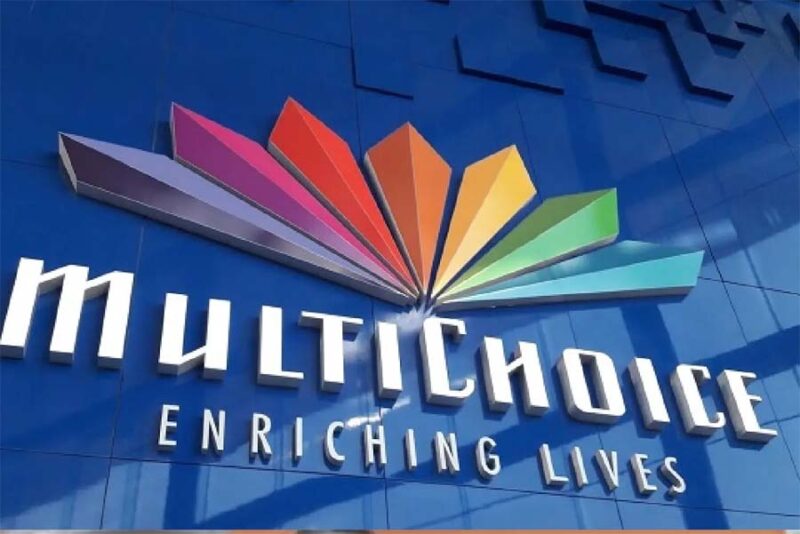
Multichoice shuns court order, proceeds with increase of DSTV, Gotv packages
Despite the intervention of the CCPT, Multichoice Limited has proceeded to increase packages price for DSTV and GOTV as announce on Wednesday last week.
Newstrends had earlier reported that the corporation announced that the new rates will go into effect on Wednesday, May 1, 2024, in a statement.
Meanwhile, on Monday, MultiChoice Nigeria Limited was ordered by the Competition and Consumer Protection Tribunal (CCPT) in Abuja to suspend the planned prices and tariffs hike on packages and services.
READ ALSO:
- Ogun frees 49 inmates to decongest prisons
- JAMB, NCC in talks to produce special SIM for students
- Labour-FG face-off imminent as NLC rejects new salary increase
The three-member tribunal, presided over by Saratu Shafii, gave the interim order following an ex-parte motion moved by Ejiro Awaritoma, counsel for the applicant, Festus Onifade.
News prices includes: DStv, Premium bouquet, the price moved from N29,500 to N37,000; Compact+ from N19,800 to N25,000; Compact from N12,500 to N15,700; Confam from N7,400 to N9,300, among others.
For GOtv users, Supa+ increased from N12,500 to N15,700; Supa moved from N7,600 to N9,600; Max from N5,700 to N7,200; Jolli, from N3,950 to N4,850, among others.
Multichoice shuns court order, proceeds with increase of DSTV, Gotv packages
Business
As controversy over Maersk-FG port investment rages, Onanuga says no $600m deal signed
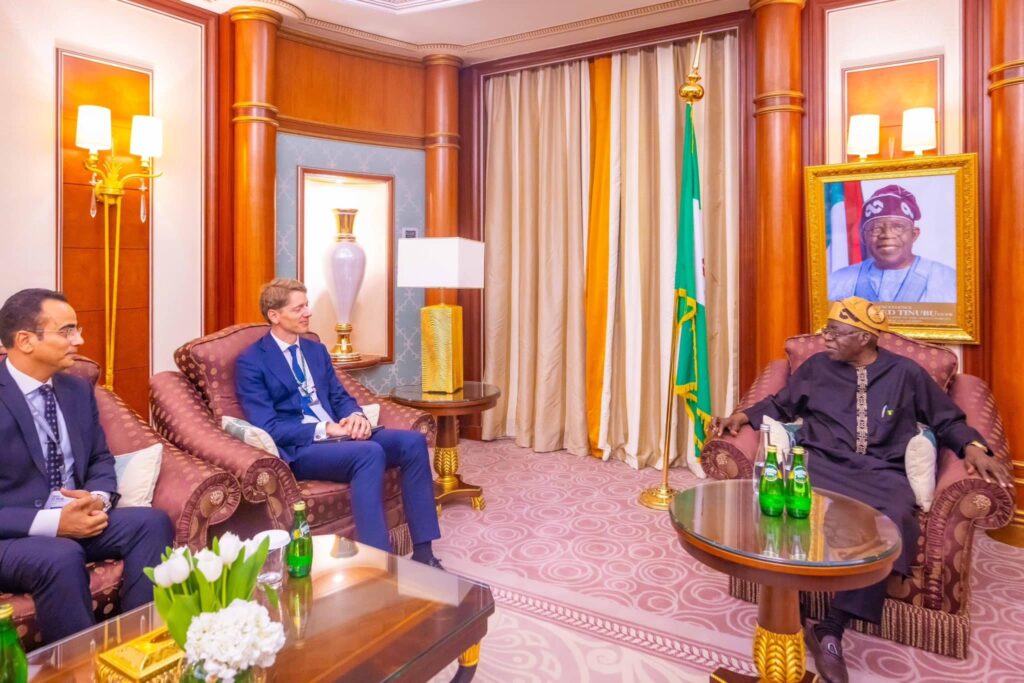
As controversy over Maersk-FG port investment rages, Onanuga says no $600m deal signed
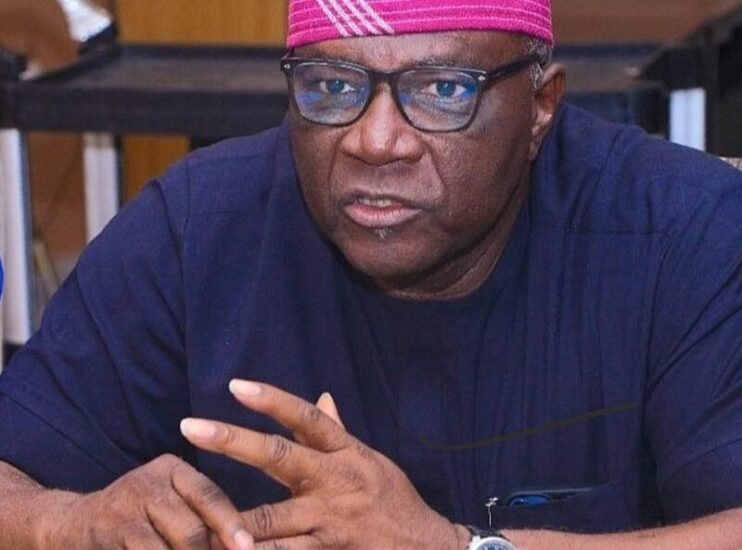
The Nigerian government and a shipping giant, Maersk, have not signed any investment agreement, Bayo Onanuga, special adviser on information and strategy to President Bola Tinubu, has said.
Onanuga was reacting to the controversy surrounding the reported sealing of a $600 million deal for the development of the nation’s seaports.
He said there was only talk “of possible investment in Nigeria” by Maersk.
Interestingly Onanuga had hinted about the deal in a tweet said to have been pulled down after the social media backlash.
After President Tinubu’s discussion with Maersk’s Chairman Robert Uggla on April 28, on the sidelines of the World Economic Forum Special Meeting in Riyadh, Saudi Arabia, the presidency had released a statement announcing that the shipping company had pledged to inject $600 million into the Nigerian seaport industry.
“Danish shipping company, A.P Moller-Maersk plans $600m investment in Nigeria. Danish shipping and logistics company A.P Moller-Maersk has disclosed a planned investment of $600 million in Nigeria to accommodate more container shipping services in Nigerian ports,” Onanuga wrote on X.
In a statement, Tinubu’s spokesperson, Ajuri Ngelale, also said “President Tinubu meets Chairman of Danish shipping giant Maersk, secures $600 million investment in Nigerian seaport infrastructure.” He quoted Uggla as saying, “We believe in Nigeria, and we will invest $600m in existing facilities and make the ports accommodating for bigger ships.”
In response to this. Maersk officials have denied any such agreement and stress no deals have been signed.
Onanuga in a new report by TheCable, an online news platform admitted no agreement on investment had been reached by the two parties.
“I think the statement issued by Maersk did not talk about a deal. There was no deal according to that statement that I read.
“However, there was talk of investment,” the special adviser said.
“No document or agreement was signed, so there was no deal. But there was talk of a possible investment in the country.
“So, go and read the statement again. They never said any deal was signed between the Nigerian government and the Dutch company. There was nothing like that.”
Onanuga however said the shipping company did not expressly deny that there was an investment talk.
He said people are “unnecessarily giddy over nothing.
-

 metro2 days ago
metro2 days agoLabour Day: Nigerian workers are dedicated, resilient, says NURTW leader
-

 Education3 days ago
Education3 days agoBREAKING: JAMB releases 2024 UTME results
-
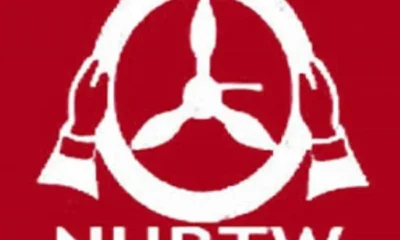
 Auto21 hours ago
Auto21 hours agoAppeal court takes over NURTW case as NIC withdraws
-

 metro2 days ago
metro2 days agoWoman arrested in Ogun after husband commits suicide
-

 metro3 days ago
metro3 days agoBREAKING: Suspected herders kill 3 mourners, farmers in Enugu
-
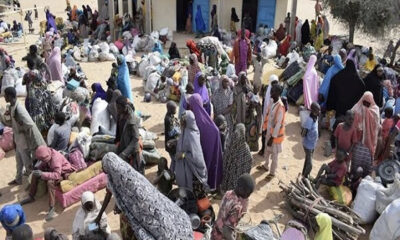
 News2 days ago
News2 days agoFG set to repatriate 20,000 Nigerians from Chad, Cameroon
-

 News3 days ago
News3 days agoSeun Kuti retracts allegation on P&ID fraud, tenders apology
-

 Sports3 days ago
Sports3 days agoFinidi George appointed Super Eagles head coach





